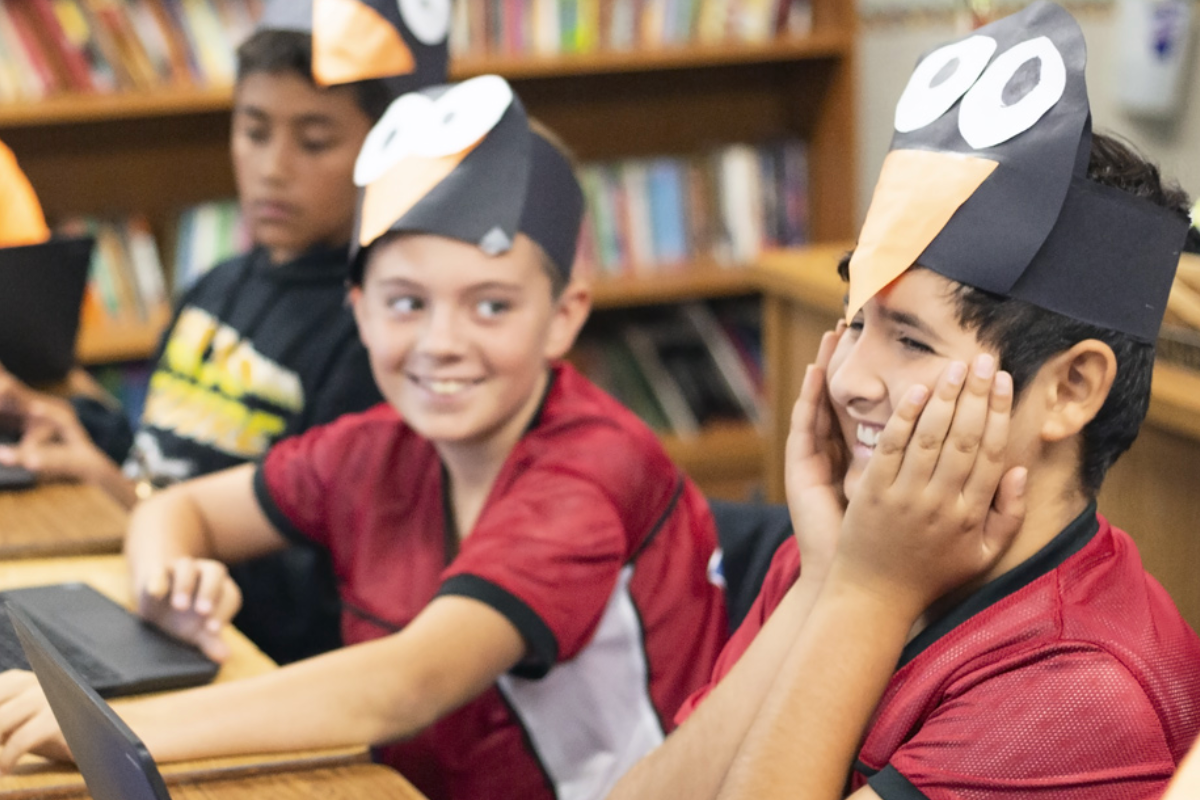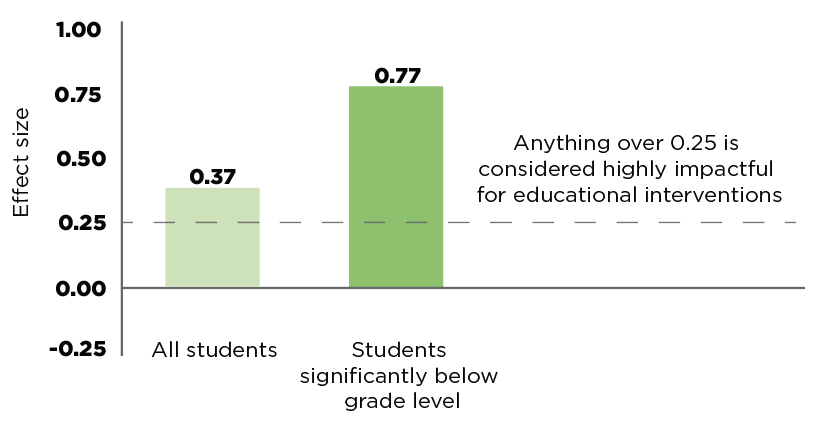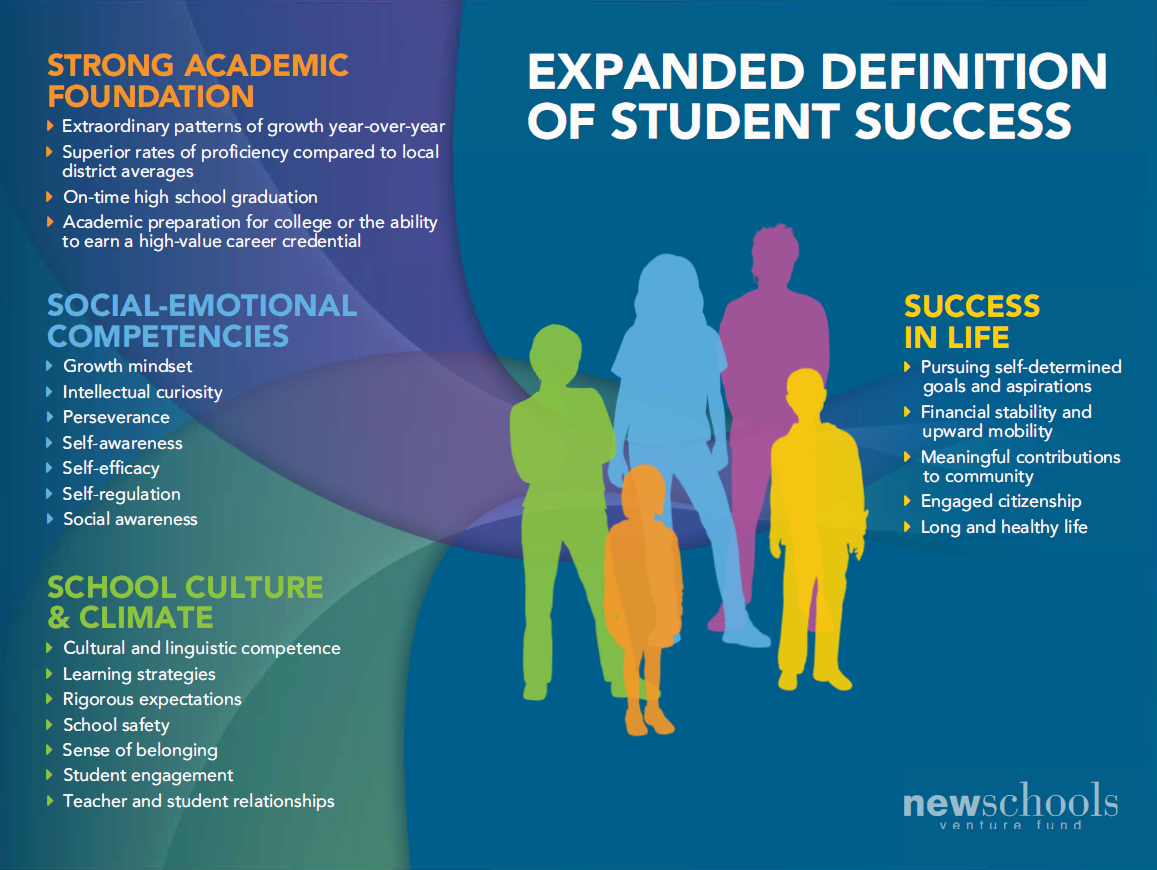
Can a game change how you feel about math? The answer is yes, and the research proves it.
The Journal of Research on Technology in Education (JRTE) recently published a rigorous study that found students who play ST Math have higher mathematics self-beliefs than non-ST Math students.
The randomized controlled trial (RCT) study - Impact on mathematics self-beliefs from a mastery-based mathematics software - was a joint effort between researchers from the University of Delaware, North Carolina State University, WestEd, and the National Center for Research on Evaluation, Standards, and Student Testing at UCLA.¹
There are countless research studies, books and thought leadership discussions about productive struggle, grit, perseverance, and the importance of students believing that they can solve any problem they encounter, both in the classroom, and in the world outside of it. And yet, the primary focus for rigorous studies continues to be state standardized math test scores. Which is why this particular study is so important, and more studies like this are so needed.
The Rutherford et al report itself stated that measuring the success of edtech programs by test scores alone is not enough, acknowledging that “researchers must understand the mechanisms through which these programs work.”

The study included all second through fifth grade students at 52 southern California schools, each with high percentages of English learners (ELs) and students qualifying for free or reduced lunch. Grades using ST Math were compared to students in the same grades with similar demographics that were not using ST Math.
The study found:
So, for those students who were behind in math, their self-beliefs were even more positively impacted.

Students who believe they can accomplish a task are more likely to invest time and effort in working toward this accomplishment, even in the face of difficulty.
- Rutherford et al, Journal of Research on Technology in Education, 2019
We know that student mindsets are critical to student success, and that the definition of student success is expanding. There is a growing body of research studies, books and thought leadership discussions about productive struggle, grit, perseverance, and the importance of students believing that they can solve any problem they encounter, both in the classroom, and in the world outside of it.
When it comes to mathematics, struggle can make a profound difference for students. In a recent EdSurge article, “Why Struggle Is Essential for the Brain — and Our Lives,” professor and author Jo Boaler describes a student whose “standardized test score in mathematics improved by 450 percent after 18 struggle filled lessons.” At MIND, we have talked extensively about productive struggle and the importance of mathematical rigor. Both are part of the ST Math learning model, which helps students understand math concepts through productive struggle and experiential problem-solving.
We cannot achieve anything creative without being comfortable with mistakes and struggle.
- Jo Boaler, youcubed.org
Since 2015, New Schools Venture Fund (NSVF) has been investing in schools that support an expanding definition of student success that includes not only academics, but social-emotional competencies, and school culture/climate factors.

NSVF and MBZ labs just published a new paper, “Optimizing EdTech for an Expanded Definition of Student Success,” on how research about social emotional development, school climate, and culture is applicable to the design of edtech tools.
Academic success is dependent on cognitive, social, and emotional skills. These domains are deeply intertwined and mutually reinforcing therefore, the practice of social emotional learning and academics in isolation of one another is out of alignment with how humans naturally learn and develop.
- Excerpt from Optimizing EdTech for an Expanded Definition of Student Success (2020)
At MIND Research Institute, we believe every student has the potential to deeply understand, and truly love math. This belief drives all of us—researchers, educators, mathematicians, game designers—to make ST Math the best program it can be. ST Math:
This exciting RCT study on student self-beliefs, along with our recent research-based design product certification from Digital Promise, are great additions to the ST Math efficacy portfolio, which you can learn more about at stmath.com/impact.
¹ The research was supported in part by grants from the Institute of Education Sciences to the University of California, Irvine (Grant R305A090527), and based upon work supported by the National Science Foundation Graduate Research Fellowship(Grant DGE-0808392).
The Ripple Effects of Resilience
Profile in Success: Evaluation Links ST Math to Improved Growth Mindset
Brian LeTendre was the Director of Impact Advancement at MIND Research Institute. In addition to building thought leadership and brand awareness for MIND, Brian worked cross-functionally internally and externally to amplify MIND's social impact and accelerate our mission. He is an author, podcaster and avid gamer.
Comment